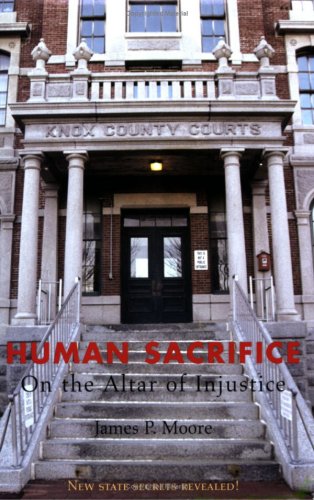Trial and Error
The Outcry for Justice in the Dennis Dechaine Case
Dechaine supporters pin hopes on DNA test results
Nov 10, 2012
By Jenna Beaulieu
Staff Writer Fiddlehead Focus
October 30th 2012 08:51pm
ST. JOHN VALLEY – Recent DNA testing of evidence from a 1988 murder may have opened up a door for a retrial of Dennis Dechaine, the man courts convicted of murdering 12-year-old Sarah Cherry in 1988. However, there are two very different interpretations of the test results, and Dechaine’s defense attorney Steven Peterson is pursuing additional testing.
Peterson said, “There’s more testing being done.”
According to the Dechaine’s attorney, labs conducted testing of Cherry’s fingernail clipping in the past and, while the tests found male gender DNA on the clipping, it excluded Dechaine as a match. These results were the subject of a hearing in June where Dechaine’s attorney presented a judge with “this additional evidence.”
Peterson said the judge left the case open while Cellmark Lab in Texas performed additional testing. The most recent testing was of Cherry’s shirt and bra and the scarf with which the perpetrator strangled her.
Peterson said, “We did get new male gender DNA on all three items.”
Dechaine’s defense sent his blood to Cellmark Lab to compare it against the new samples.
“The state’s taking the position that he’s not excluded, but my expert said he is,” said Peterson.
Deputy Attorney General and Chief of the Criminal Division Bill Stokes said, “This doesn’t change anything.”
Greg Hampikian of The Innocence Project in Idaho is Peterson’s expert. He testified at Dechaine’s June hearing and, according to Peterson, has confirmed that a lab can perform a more sensitive mini-STR test on the samples “that’ll hopefully be more specific in its identification.”
Also, said Peterson, Hampikian’s assessment of the data concludes that “at least one alternate suspect has not been excluded.”
Trial and Error President Carol Waltman said, “Our biggest thing is that there’s another suspect’s DNA on Dennis’ scarf. The scarf was in Dennis’ truck and he admitted that. So why would there be another man’s DNA on it?”
Trial and Error, according to their website, “is seeking a retrial for Dennis Dechaine” and states that he has been “wrongfully imprisoned since 1988.” According to Waltman, the group now has over 7,000 members working towards a retrial whether through donations, volunteer work, or letters.
Waltman said, “We’re hoping this testing will bring the probability even higher for an alternate suspect. We’ve been waiting for 24 years to get this done.”
Stokes opposes their interpretation of the results and said, “There’s not conclusive evidence that there’s an alternative perpetrator. The type of testing [recently performed on the scarf] doesn’t ‘match’ a profile to a sample. Their own lab is saying that they can’t rule Dechaine out as a suspect.”
“We’re going to have a hearing for retrial. It’s going to happen,” said Peterson.
At the hearing, the judge will decide whether any new results would have affected the jury’s conclusion during the original trial. If it might have, then the judge is able to call for a retrial and the proceedings revert back to square one, according to Peterson.
Waltman said, “[Dechaine] is pretty excited about it. He’s afraid to get his hopes up though, because they’ve been crushed many times by the system.”
She added, “They should grant him a new trial and consider all the evidence. I just want justice for Sarah.”
Peterson received an email from Cellmark Lab confirming they may return the results of the mini-STR test within three to four weeks.
“It’s very complicated,” said Waltman. “We leave it to the experts. Science doesn’t lie.”
According to Stokes, however, “science” isn’t working in Dechaine’s favor.
“You’ve got to focus on what the real evidence is,” said Stokes. “The DNA evidence has jumped all over the place and nothing has undermined all the evidence that convicted Mr. Dechaine in the first place.”
He continued, “It’s very frustrating. They ignore the evidence because it doesn’t suit their purposes.”
According to Stokes, he was unaware that Peterson was moving forward with the mini-STR testing.
